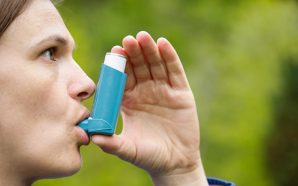About 37 million people in the US are affected by sinus infections. A sinus infection is when the tiny holes that connect your nasal passages to your sinus get blocked. They are cavities that lay beneath your eyes, nose, and cheeks. When the gunk blocking them builds up, bacteria grows, and there is a pressurized, swollen, painful feeling. The causes of the blockage are harder to figure out, and there are several!
Viruses
Most sinus infections are caused by a common cold. The common cold is a virus and unfortunately, cannot be cured. Antibiotics are useless when it comes to curing a virus, and therefore, you have to just wait it out. Symptoms should improve after a week or so. The best way to avoid a virus is to get a flu shot, keep your hands clean, and don’t hang out with people who are suffering from it.
Allergies
Inflammation caused by allergens can block the nasal passages and hinder mucous drainage. If you are prone to allergies or suffer from hay fever, you should try to avoid your allergen triggers such as dust, pollen, or pet dander. People with allergies and sinus infections will most likely suffer more extensively. OTC antihistamines and nasal sprays can help reduce and relieve your symptoms.
Bacteria
If you have a common cold for more than 10 days, it’s likely that bacteria has accumulated. Once the bacteria in your body finds the right environment to grow, it will do so with a vengeance. While it is rarely bacteria that jump-starts sinus infections, bacteria will complicate secondary infections 10 fold. Take a decongestant to help clear your passages to avoid developing bacterial sinusitis. If you do develop it, antibiotics are the way to go.
Polyps
Nasal polyps develop in the nose or sinus tissues and are small, benign growths. They can restrict your airway passages causing headaches and other issues. They prevent mucous drainage which can lead to sinusitis. A nasal steroid spray or oral steroids are usually prescribed for these, but sometimes do not work. If they don’t work for you, you may need surgery.
Flying
If you travel a lot by air, you can trigger a build-up of mucous in your sinus because of the air pressure. You should take a decongestant nasal spray or inhaler before you take off to help keep your sinus clear.
Featured Image: DepositPhotos/ imagepointfr








